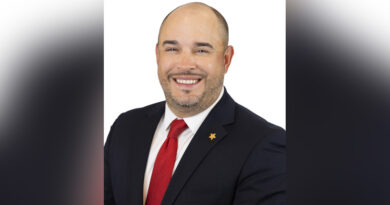UP Considers Mile-Per-Year Program Change

A not-so-popular joke around the office at University Park City Hall is that the mile-per-year program has shifted to the metric system.
“It’s now a kilometer per year,” said Jacob Speer, the city’s solid waste director, half-heartedly laughing about a dwindling effort to replace one mile of water and sewer lines each year.
Rapid growth across Dallas-Fort Worth has allowed contractors to become less competitive, and smaller programs, like UP’s mile-per-year program, are seeing unprecedented increases in bids for the work, Speer explained.
The fickle market has made budgeting harder to predict, he said. “It almost forces you to plan for the worst.”
City leaders end up with no good options. They can budget for the most significant increase they can forecast — straining the budget elsewhere — or, they can draw back on that mile, which is exactly what they’ve done.
“What we found was happening was when the budget was tight, it was a lot easier to reduce the scope of the project than [to] find more money,” Speer said.
But he thinks he has a solution.
Speer has suggested bringing the work in-house by phasing in three six person crews over a three-year period.
Data pulled from a pilot program the city funded last year shows some savings, the need for a $1.8 million capital investment for equipment, and a strong likelihood that the new city crew would be able to handle the mile-per-year program. The cost to move the program in-house would be about $3.1 million annually — that would cover salary, benefits, equipment, materials, and a “generous” 15 percent contingency.
It costs about $3.3 million to contract the same work, city leaders said.
Council members made few comments on the proposed change during a presentation in October, but did wonder how unexpected inflation in material costs or bad weather would impact the projected numbers should the city bring the program in-house.
The contractor currently takes on those risks when the city outsources the work, Speer responded. He added later that the impact of inflation and weather would be far easier to predict than the “volatile construction industry in Texas.”
Council members are expected to decide whether they want to bring the program in-house early next year.
“Bringing our mile-per-year projects in-house has real potential and could result in substantial savings for us in the coming years,” Mayor Olin Lane said. “I applaud Public Works for their careful review of all aspects of the pilot project and for committee examination of what has taken place [up] to this point.”








